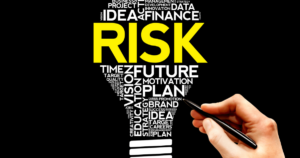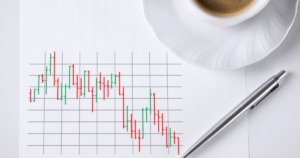Introduction
The Forex economic calendar is a powerful tool that can provide traders and investors with valuable insights into market movements. By staying informed about upcoming economic events and releases, traders can make more informed trading decisions and potentially enhance their profitability. In this comprehensive guide, we will delve into the various aspects of using the forex economic calendar, from understanding its purpose to effectively incorporating it into your trading strategy.
What is the Forex Economic Calendar?
The forex economic calendar is a schedule of economic events and data releases that have the potential to impact the financial markets. It includes a wide range of events such as central bank interest rate decisions, GDP figures, employment reports, inflation data, and trade balance numbers. These events provide valuable information about the economic health of countries and can significantly influence currency exchange rates and other financial instruments.
Why is the Forex Economic Calendar Important?
Understanding the importance of the forex economic calendar is crucial for traders. Economic events can cause significant market volatility and price fluctuations, making it essential to stay updated on scheduled releases. By being aware of these events, traders can anticipate potential market movements and adjust their trading strategies accordingly. Additionally, the economic calendar can help traders avoid trading during high-impact news releases, reducing the risk of sudden and adverse price swings.
How to Access and Read the Forex Economic Calendar
Accessing the forex economic calendar is easy, as many trading brokers, websites, and platforms provide their own versions. These calendars offer automatic updates, user-friendly interfaces, and various features to simplify the analysis process. When reading the calendar, it’s important to focus on the most important events and data releases from major countries. These events are typically categorized based on their priority levels, and the calendar provides information about the time of occurrence, affected currencies, and the organization releasing the report.
Incorporating the Forex Economic Calendar into Your Trading Strategy
Integrating the forex economic calendar into your trading strategy can significantly enhance your decision-making process. Here are some key steps to effectively use the economic calendar:
- Identify High-Impact Events: Focus on events with a high impact on the markets, such as central bank interest rate decisions or major economic indicators. These events are likely to have a more substantial effect on prices and can provide potential trading opportunities.
- Understand Currency Relationships: Analyze how specific economic events are likely to impact currency pairs. For example, news releases from the United States can have a broad influence due to the USD’s status as a global reserve currency. Consider the correlations between events and currency pairs to make more informed trading decisions.
- Combine Fundamental and Technical Analysis: While the economic calendar is a fundamental analysis tool, it’s essential to integrate it with technical analysis. Look for alignment between technical indicators and upcoming economic events to identify potential trade setups and confirm trade entries or exits.
- Practice Risk Management: Always implement proper risk management techniques when trading around economic events. Volatility can increase during these periods, so set appropriate stop-loss orders and manage your position sizes accordingly to protect your capital.
Tips for Beginner Traders
If you’re a beginner trader, incorporating the forex economic calendar into your trading routine can be especially beneficial. Here are some tips to help you get started:
- Start with a Few Currency Pairs: Focus on analyzing and trading a small number of currency pairs initially. This allows you to better understand their behavior and reactions to economic events.
- Study Past Reactions: Use backtesting software or manually analyze past reactions of currency pairs to specific news events. This can provide insights into how the market has historically responded and help you make more informed predictions about future reactions.
- Avoid Major News Events: As a beginner, it’s generally advisable to avoid trading during major news releases. The increased volatility and rapid price movements associated with these events can be challenging to navigate, especially without sufficient experience.
- Learn from Experienced Traders: Engage with experienced traders, join trading communities, and seek mentorship to learn from their insights and experiences. This can help you gain valuable knowledge and improve your understanding of how economic events impact the markets.
Common Queries About the Forex Economic Calendar
Q: Are all economic events equally important?
A: No, not all economic events have the same impact on the markets. High-impact events such as central bank decisions or major economic indicators tend to have a more significant effect on prices compared to low-impact events. It’s important to prioritize and focus on events that are likely to generate substantial market movements.
Q: Can the economic calendar predict market movements with certainty?
A: While the economic calendar provides valuable information about upcoming events, it cannot predict market movements with certainty. Market reactions are influenced by a variety of factors, and unexpected developments can occur. The economic calendar serves as a tool to help traders stay informed and make more informed trading decisions, but it does not guarantee specific outcomes.
Q: How frequentlyshould I check the economic calendar?
A: The frequency of checking the economic calendar depends on your trading style and the timeframes you trade. Some traders prefer to check it daily to stay updated on upcoming events and plan their trades accordingly. Others may focus on specific days of the week or month. It’s recommended to establish a routine that suits your trading strategy and goals.
Q: Are there alternative sources for accessing the economic calendar?
A: Yes, apart from the economic calendars provided by trading brokers and platforms, there are several reputable financial news websites that offer comprehensive economic calendars. These websites often provide additional analysis and insights alongside the calendar, which can be valuable for traders seeking a broader understanding of market dynamics.
Key Takeaways
- The forex economic calendar is a fundamental tool that provides valuable information about economic events and data releases that can impact the financial markets.
- By incorporating the economic calendar into your trading strategy, you can anticipate market movements, adjust your trading approach, and potentially enhance your profitability.
- Understanding the significance of high-impact events and their potential effects on currency pairs is crucial.
- Combining fundamental analysis from the economic calendar with technical analysis can provide a comprehensive view of the market.
- Beginner traders should start with a few currency pairs, study past reactions, and seek guidance from experienced traders.
- While the economic calendar is a valuable resource, it’s important to remember that it does not guarantee specific market outcomes, and risk management should always be practiced.
Remember, the forex economic calendar is a dynamic tool that requires continuous learning and adaptation to changing market conditions. By staying informed and utilizing the calendar effectively, you can make more informed trading decisions and potentially improve your overall trading performance.








